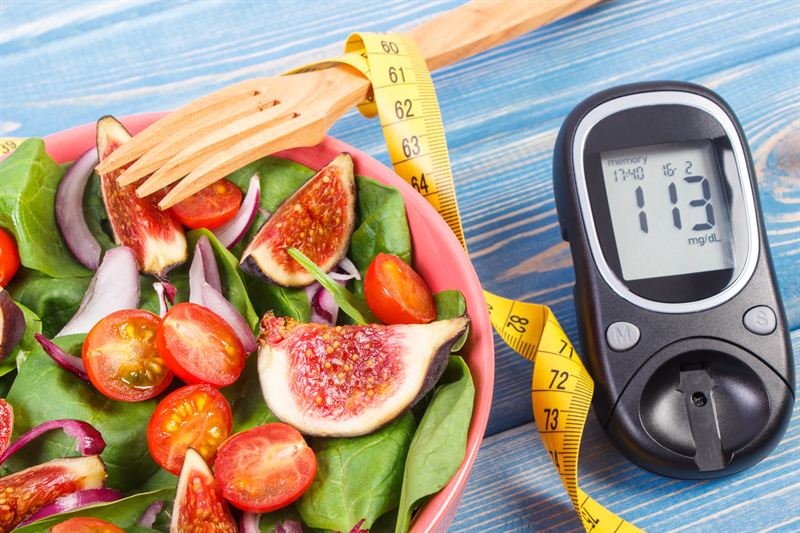Diet For Diabetics

What exactly is Diabetes?
Diabetes mellitus is a group of metabolic diseases characterized by high blood glucose levels that result from defects in insulin secretion, or action, or both. Usually, our blood glucose levels are tightly controlled by insulin (hormone produces by the pancreas). When the blood glucose rises (for example, after eating food), insulin is released from the pancreas to normalize the glucose level. In patients with diabetes, the absence or insufficient production of insulin causes hyperglycemia.
What are the types of diabetes?
Type I Diabetes (Insulin-dependent): A disorder in which the body makes little or no insulin at all because of β-cell destruction. It often begins in the first or second decade of life, but may also occur in older adults. Hence, they need regular insulin shots for their treatment.
Type II diabetes (non- insulin-dependent): The most prevalent form of diabetes, comprising 90.6% of all people with diabetes. The body makes less insulin, or the cells are unresponsive to insulin. The body may have enough insulin and still the insulin response is ineffective because of the blockage of insulin receptors, also termed as insulin resistance. Overproduction of insulin initially exhausts the β-cells production of insulin, consequently leading to less insulin production, thereby causing diabetes.
Gestational diabetes: Refers to diabetes developing during pregnancy. It is essential to diagnose and treat gestational diabetes because it severely affects the fetus. Gestational diabetes signals that a person has a higher chance of developing permanent diabetes later, mainly if the individual is overweight/ obese.
What are the symptoms of diabetes?
- Always tired
- Frequent urination
- Unexplained weight loss
- Still hungry (especially after eating)
- Numbness or tingling of feet
- Blurred vision
- Wounds that don’t heal
Healthy Diabetic Eating Habits
- Limiting foods that are high in sugar
- Eating smaller portions, spread out over the day
- Being careful about when and how many carbohydrates you eat
- Eating a variety of whole-grain foods, fruits and vegetables every day
- Eating less fat
- Limiting your use of alcohol
- Using less salt









